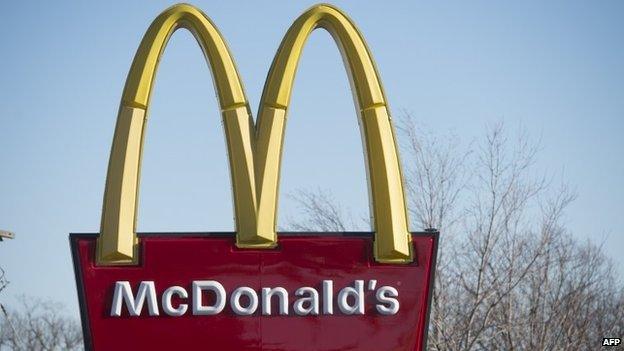McDonald’s faces worker pressure as shareholders meet
- Published
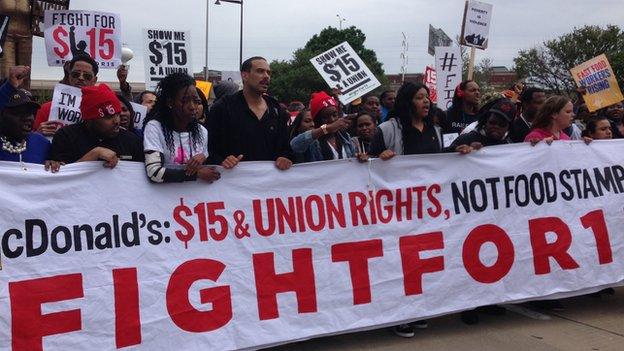
Workers and labour unions are stepping up their pressure on McDonald's to raise the wages it pays workers.
Over 1,500 employees and supporters converged on the fast-food giant's headquarters in Illinois on Wednesday.
Larger protests are planned for Thursday morning, before the company's annual shareholder meeting.
The company has been under pressure from workers to raise wages, just as investors have become increasingly unhappy with the firm's slumping sales.
Customers in the company's biggest market - the US, which is responsible for 40% of its operating income - have been increasingly foregoing McDonald's and other fast-food restaurants in favour of so-called "fast casual" chains like Shake Shack and Chipotle.
That has caused the firm's share price to sink - and let to grumbling amongst shareholders, who will vent their frustrations with McDonald's management on Thursday behind closed doors. McDonald's has banned media from attending the meeting.
Earlier in May, chief executive Steve Easterbrook - the Brit who took over the firm in January - unveiled plans to turn around the company after it reported yet another quarter of disappointing results.
'Still in poverty'
McDonald's is facing pressure on all sides: from customers, investors, and increasingly, workers.
The company has been under pressure for over two years by the Fast for 15 campaign - a group of workers, backed by traditional labour unions - that has called on McDonald's and others to raise the base amount it pays workers to a so-called "living wage" of $15 (£9.7) per hour.
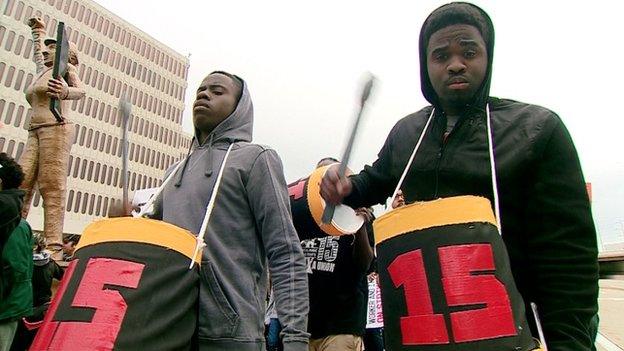
The current US federal minimum wage is $7.25, but some states and cities - most notably, Los Angeles - have higher minimums.
Outside McDonald's headquarters in Oak Brook, protesters carried banners and balloons, and chanted slogans.
"I've been working at McDonald's for the last 23 years and I'm still living in poverty," Tyre Johnson told the BBC at the protest.
Mr Johnson says he started working at a McDonald's in Chicago in 1992 for $4.25 per hour and currently only makes $8.55.
"The shareholders of McDonald's are investing money into a million dollar bigtime boss - why can't they invest that money into the workers?" he added.
McDonald's, for its part, dismissed the protestors.
"Today's protest in Oak Brook is the latest instance in an $80m publicity campaign organised and paid for by the Service Employees International Union and its members," said the company in a statement.
"McDonald's and its more than 3,000 independent franchisees are standing strong and together in the face of this union attack."
'Watershed'
However, McDonald's has already said it plans to raise the wage it pays workers to above $9 per hour - and several other firms, including Wal-mart and Target, have said they will increase their hourly minimums in the wake of the protests.
Part of the move, experts say, is that as the US economy recovers, large firms have to increase their base wages to keep workers.
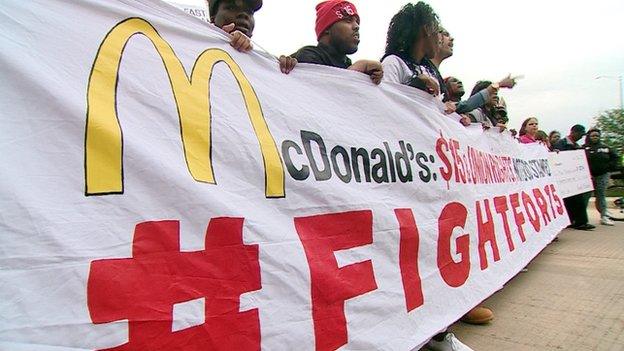
But the companies also face mandatory wage increases in the several states and US cities that have voted to raise the local minimum wages since 2014.
On Tuesday, Los Angeles became the largest US city to boost wages, voting to increase the minimum wage in the city to $15 per hour by 2020. Experts say that amounts a $2.4bn wage increase to over 500,000 workers in the city.
"This really is a watershed," Ken Jacobs, head of the University of California-Berkeley's Labor Center, who added that the Fast for 15 movement was not just about wages but also about the right to organise fast food workers into a union.
Prof Jacob's said that while the city and state minimum wage legislation might be more impactful: "It is the protest at company headquarters that are moving the policy makers."
- Published4 May 2015
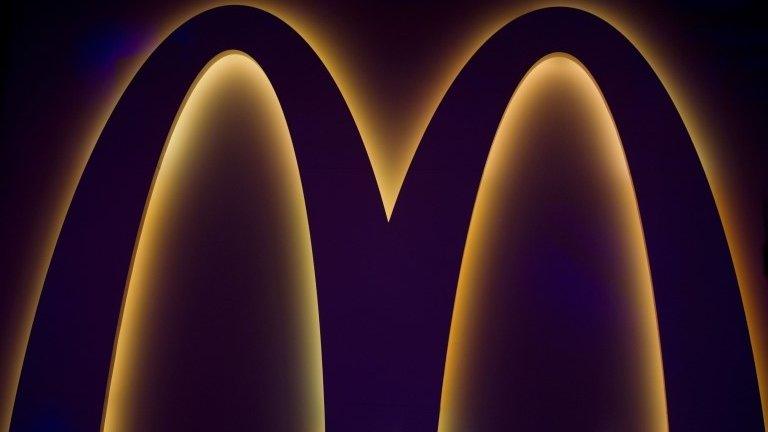
- Published15 April 2015
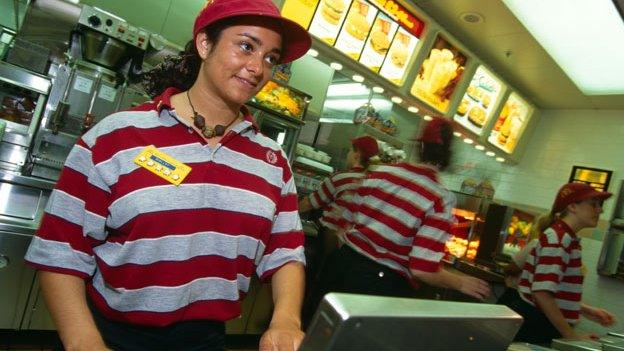
- Published4 May 2015
